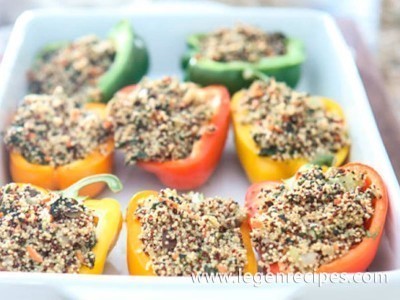Spices in the children’s diet.
Adults do not think of food without salt, spices, various seasoning, but can imbue them taste dishes that are prepared for the child? About salt in the diet of children we have said in the article “Salt and sugar. Should I give my child? “. Supplement meals with new flavors is due and other aromatic substances of natural origin: herbs and spices. We talk about them today.
Generally spices need to be careful: in some spices contain aromatic acids and tannins, which can be dangerous for the undeveloped digestive tract, mucous membrane of the stomach and intestines of the child. Besides spices very allergenic. I would recommend to consult a pediatrician and allergist before being introduced into the diet of these or other spices. But with regard to hot spices, here I am very categorical: chili, horseradish, mustard and cayenne pepper should not appear in the child’s diet until at least 7 years of age.
At a time when the child uses only breast milk and formula milk in his diet no condiments should not be. They can cause a violation of microelement balance in the body and even burn the mucous. As they get older you can gradually introduce new child spices.
What spices and at what age can a child eat?
Fennel
- Used in teas for children from 4 months.
- It is useful to increase the number of mothers breast milk and children, as is an excellent remedy for flatulence, colic, colitis, strengthens the immune and nervous system, and helps the intestinal baby.
Dill
- Add 10 months.
- It contains carotene, essential oils, and a variety of vitamins.
- They should spice baby soups and meat dishes and fish.
Parsley
- Adding to the 10 months, with a year and a half, you can add the parsley, fried in olive oil.
- It is rich in vitamin C, contains a lot of salts, phosphorus, calcium and magnesium, has anti-edematous properties. Often pediatricians recommend parsley add to the children’s diet if the baby has neurological disorders.
Garlic
- Adding a half years.
- It is a natural antibiotic, strengthens the immune system and bone, normalizes the heart and improves digestion.
- Perfect for soups and vegetable purees.
Basil
- Adding a child not earlier than two years.
- Relieves spasms in the digestive tract baby, prevents flatulence.
- A mixture of basil and rosemary perfectly replace pepper.
Cinnamon
- Add to two years.
- Cinnamon helps digestion, improves appetite, has antibacterial properties.
- Ideally combined with the taste of apple.
Ginger
- Add to two years.
- It improves the immune system, normalizes the digestive system, helps in the treatment of SARS. Recommended by doctors in the postoperative period.
- For children it is best added to the diet in the form of ginger tea.
Pepper
- Black pepper is added to 5 years, not before: for children’s stomach, he is a strong irritant.
- Sweet green and red peppers allowed kids with one and a half years, on condition that the baby is not allergic. These types of peppers are rich in vitamins and trace elements, stimulates the appetite, it is indispensable for vitamin deficiency.
- Be sure to consult a pediatrician before the introduction of pepper in the diet of the child, as the presence of a crude fiber and essential oils may adversely affect the baby’s condition at the time of illness.
Horseradish
- There are only 7 -8 years since horseradish relish is too sensitive mucous children.
- According to the content of vitamin C is even ahead of lemon. Rich in minerals, fiber and carotene, contains natural antibiotics.
Mustard
- Allowed only after consulting with a pediatrician.
- Increases appetite, it helps normalize the digestive system, has a laxative effect, possesses antibacterial and antifungal properties.
- Attention! Excessive use of mustard can cause shortness of breath and heart rhythm abnormalities.
Spices, is contraindicated in children:
1. saffron,
2. turmeric,
3. Red Hot Peppers.
Avoid buying multicomponent mixtures of spices for the baby. Such mixtures often contain chemical flavor enhancers (particularly unhealthy monosodium glutamate), which is unacceptable in the child’s diet because may adversely affect the health of your baby.




